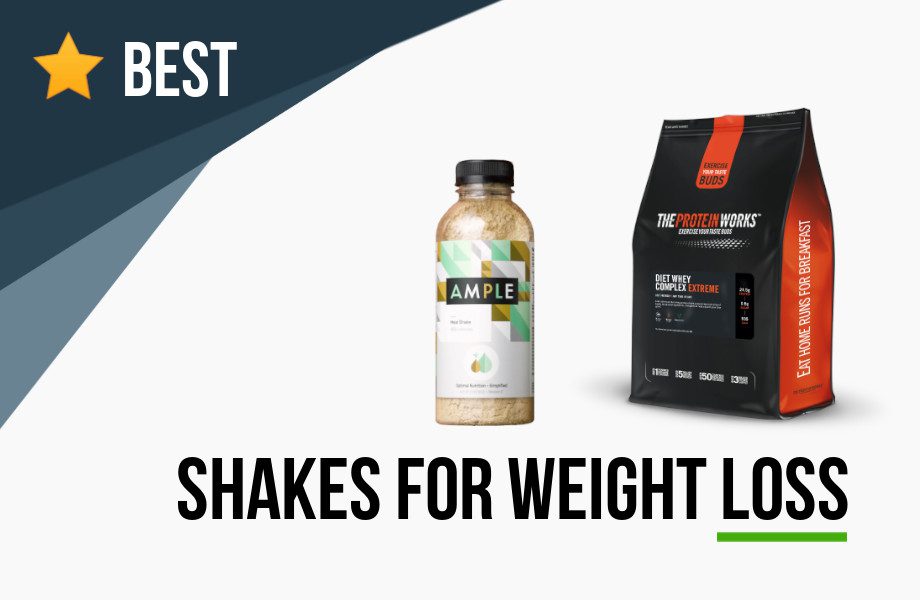Summary | Before You Start | How to Lose Weight with MR | FAQ | Motivation Stories | Infographic
Is this a click-bait title? I guess it kind of is. However, it is also true, since this guide has helped me to lose 10kg over in 6 months and it establishes the fundamentals for a healthier life style. One without weight fluctuations, or worry about being fat. Meal replacements are a very useful tool to help you lose weight and also keep it that way. Also, check the best meal replacements for weight loss to make the best use out of this guide.
5 Reasons Why Meal Replacement Shakes Can Help You Lose Weight
- They allow you to track your calories, macronutrients and micronutrients easily. Easy to quantify.
- They tend to be filling and satiating, which helps you mitigate the hunger you may feel.
- They are very flexible to diet and nutritional requirements of each individual.
- You do not need help from anyone else but yourself to do so.
- They are often cheaper than weight loss supplements.
Summary
Is X meal replacement good to lose weight?
- Yes, it can be a tool to do so.
- Advantages: It helps you to track calories (very important), it has good nutritional balance, should be filling enough, you can be on top of your diet if you are honest.
- Disadvantages: You might get tired if you only eat shakes. Use it as a tool, not like a magic food that is going to make you lose weight.
Think about: WHAT IS GOING TO MAKE YOU LOSE WEIGHT?
- Calories IN/OUT. Yes. You need a caloric deficit.
- However, losing weight is not just about eating less or changing your diet. It is about changing your lifestyle and habits. If you just “diet”, you will end up gaining back all the weight you lose, eventually. Or you will give up on your diet.
Short Version
- Calculate amount of calories you need (MFP).
- Reduce calories by 100kcal ( you can put lose 0.25-0.5kg or 0.5-1lb in MFP). Decrease gradually everytime you hit a plateau.
- Weight yourself (take picture, trust it helps). Track calories.
- Weight yourself next week. See how you progress. You didn’t lose any weight? If it is week one be honest with yourself and think about what you did wrong. Keep going.
- Increase deficit by another 100kcal whenever you hit a plateau.
- Achieve your Goal.
Important Remarks.
- This is a Marathon, not a sprint. You had a bad day? You cheated? This week it wasn’t so good? IT DOES NOT MATTER, KEEP GOING. Think what a day means in one year. Don’t throw away you efforts and keep going.
- Being active overall helps. Sports ALWAYS help. Cardio, weights, walking, cycling. Is there anything you like then do it.
- Be honest to yourself. I repeat. BE HONEST WITH YOURSELF.
You can do it. Belief on you. YES meal replacements will help you, but is all up to you.
Before You Start
- Weight yourself and take progress pictures (second one is optional but recommended).
- Set yourself a reasonable weight goal.
- Time goals are not so important. Weight loss is a marathon, not a 400m race.
- Do some analytics or visit the doctor (optional). This is just to make sure all your parameters are OK.
- Sign in into MyFitnessPal and estimate how many calories you need a day.
- Choose the Meal Replacement shake that is right for you. Let us help you choosing.
- Weight loss is not a dieting process, but a change in lifestyle.
So let’s explain this steps in a bit more detail.
1- Weight and Progress Picture. The Importance of Having a Reference.
Obvioulsy, knowing your weight at the start of the dieting process is a must. Not only because it will help you to set your goals more accurately, but because it will be a reference point to which look at in a regular basis (weekly recommended) and you will be able to brag “I went from X kg/lb to X-Y kg/lb”. It is good for self motivation.
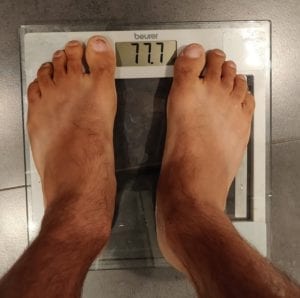
When you weight yourself, you ideally want to be in a situation where you can replicate it in other days. For that reason, I recommend you to weight yourself in the morning before you do anything else. Yes, there will still be variations depending, how much you drank and ate the day before, but it is a good reference point. Plus, use the same scale, since different scales might give you slightly different measurements.
Progress pictures can be a little bit more intimidating. I get it. Looking yourself in the mirror and taking pictures of the body you want to improve might be hard. However, it is really helpful because it helps you keep track better, see the changes you do periodically (it is hard to spot them otherwise) and acts as a motivator. I would recommend taking weekly pictures.
2- Be Reasonable. Setting Milestones to Help Us Reach the Finish Line.
Captain Obvious here once again, but I want to remark the importance of setting a doable final weight goal. Going down to 60kg as a 1.80m male might not be the healthiest goal, or going below 50kg as a woman might not really be good for you.
Nevertheless, perhaps the final goal might not be the most important one. I think a more gradual, step like, approach would be more effective for most people. Want to go from 120kg to 90? Set 3-4 different goals: 115kg -well done, you are doing it!-, 105kg -that was easy, was not it?-, 95kg -it will get harder from now on, but you almost there!- and 90!!!! Congratulations. Milestones will help you with progress, motivation and having a feeling of achievement.

Especially, when the weight loss goals are fairly big, one can get lost on the numbers and get taken aback by the huge task in front of him. Having smaller goals will help you taking them of your list as you achieve them, while seeing that the number of milestone is reduced each time.
3- No Time Stamps.The Negative Effect of Added Pressure.
Most people start with a timestamp in their minds. “I will lose 20kg in 2 months”. This is not helpful for many reasons:
- Most people do not know how much time it will take them to lose the weight they want to lose. People tend to underestimate the process and fail.
- When you are not losing weight quick enough people panic and rage quit the process.
- It creates unnecessary stress that can negatively affect the process; either via the stress itself, or secondary actions like binge eating due to the stress.
- Trying to lose a lot of weight rapidly can be very dangerous.
- What does it matter if you lose the weight in 4 weeks or 8 weeks. The important thing is to get there.
- Losing weight is a matter of changing your lifestyle so you do not put it back again, incorporating healthy habits that will help you avoid weight fluctuations. Learning habits, requires time.
Taking all that into account, I hope you decide against using a timestamp. “Oh, but I want my six-pack for the beach”. Well, then make sure you start with plenty of time, do not rush it.
4- Do a Checkup (Optional). Get to Know Your Body Before You Start.
This is something I recommend doing, so you can feel safer. Doing routine checkups with the doctor is important. Micronutrient (iron, zinc, calcium) levels, hormone levels (TSH, T4, testosterone…), blood pressure, blood sugar levels… are easy to get measured (especially in the EU, just go to the doctor and ask for a blood test) and give you tons of info about your overall health status.
With this, you will be able to do one at the end (or while on the process) and see the health benefits that your weight loss has provided you (blood sugar levels, blood pressure, cholesterol, hormonal levels). This is particularly important for those attempting an over 10kg/22lb weight loss.
5- Know the Basics. Nutrition, Calories, Macros…
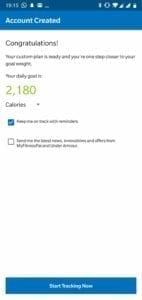
Mayhaps the most important parameter of all is knowing how many calories your body needs in order to maintain the current weight. This will allow you to be able to know how many calories you need to consume a day and plan your meals around it.
The most universally accepted #1 weight loss factor is calorie deficit, CAL IN< CAL OUT. Thus you will be tracking your calories daily.
Use an app like MyFitnesPal to help you with it. I recommend MFP because it is easy to use; it has a website and a great app; and huge food and exercise database, among many other features. Plus, it is free.
You can learn about nutrition in the Guides or Resources pages where there are tons of links to governmental health guides including:
- Healthy living by British Nutrition Foundation.
- Australian Dietary Guidelines.
- Healthy diet guidelines by the World Health Organization.
- UK NHS Eat well guide.
- 2015-2020 Dietary Guidelines for Americans by the USHHS.
6- Choose the Right Meal Replacement.
Each one of us has different nutritional needs. Some of us even have allergies to common ingredients, such as, gluten, soy, lactose, eggs or nuts. Others, choose to follow a diet, such as keto or vegan, because they believe in their physical and ecological benefits.
The meal replacement brands have grown accordingly and they offer an almost infinite amount of options. Set up a budget, criteria, have a look in the best meal replacements to lose weight article and choose what is best for you.
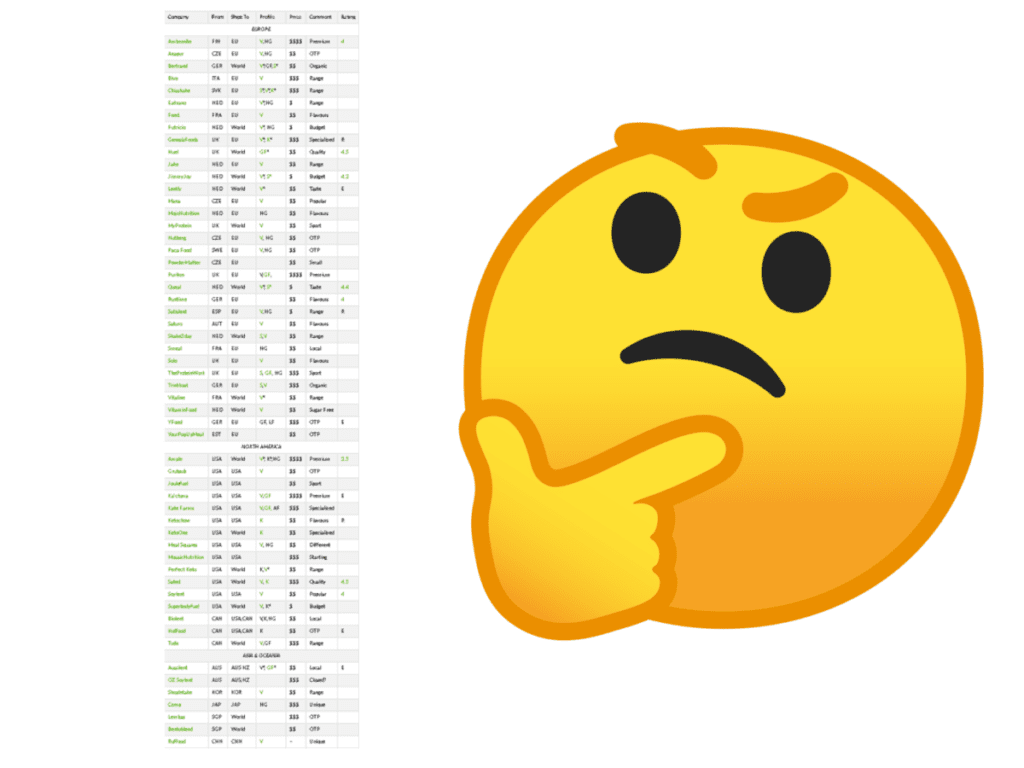
If you are not sure, check the best meal replacement shakes carefully chosen.
7- Lifestyle Change. Weight Loss Is Not Just About Dieting (Important).
You have probably heard many friends or stories from friends of friends, who keep losing weight but them putting it back again. How they diet to get ready for the summer, but for winter they are back to where they started.
This yo-yo-like behaviour is not very good for your body. Stretch marks, lose skin, and psychological stress are some of the negative effects you might suffer.
This is why I believe that weight loss is not only about that period where you are “dieting”, but it is about laying down the groundwork to start a new stage in your life. New habits, come with new health benefits and will enable you to live for longer.
There is a youtube video that really inspired me and he articulates my thoughts in a way I cannot. I strongly recommend watching it before starting:
An Analogy
Think about how you prepare for a marathon. It is a huge task. You have never run before. You do not think you can do it. But you WANT to do it. You know it will be GOOD for you.
So you start. You give TIME to yourself. You do not know when you will be ready. You set a training process. Some milestones to achieve on the way. The first 5k, the first 10k. Now you are able to run the first half-marathon.
Halfway there. However, it is the toughest half. It does not matter the routine is there. The groundwork is there. You have set goals and accomplished them. The checklist with the to-do tasks is getting smaller and smaller.
You need to go for a run today, but it does not matter. Actually, you are looking forward to it. Because you feel better and you are itching for it. Congratulations! You have signed up for your first marathon. Look back and it has been a long process, but it has been worth it.
How to Lose Weight with Meal Replacement Shakes
So after the video and my little attempt to a motivational analogy, you are ready to start.
1- CICO. Setting up a Meal Plan with a Caloric Deficit.
As we briefly mentioned earlier, the #1 key to losing weight is consuming less than what your body needs. How much less? I think 100kcal is a good starting point. But let me explain you a concept first:
Gradual Caloric Deficit.
Many people start with a 500 caloric deficit from the start. They want to lose weight and they want to do it quickly. Here is the problem with that approach. Firstly, it is really hard to consume 500kcal less and not feel quite hungry during the day. Your first few days are going to be hell. Secondly, you are going to hit a plateau sooner. This is, a point where your metabolism slows down to adapt to the caloric deficit; thus this stops being so effective. Hence, you stop losing weight sooner and you will have to either further increase the deficit (you can reach dangerous levels) or increase your activity levels to overcome the plateau.
Therefore, the best way to approach it is in a more gradual manner, where you start with a 100kcal deficit. When you reach a plateau, increase the caloric deficit to 150-200kcal, and so on.This way it will be really hard to hit a plateau that you cannot easily overcome and will make dieting easier since you will not feel that hungry.
How to Do It with Myfitnesspal
MyFitnessPal actually offers a really easy way to do it. Put your goal as lose 0.25kg-0.5kg a week (1kg is possible but a lot harder, particularly after the first few weeks). It will automatically reduce your calorie goal. Still, it you think the deficit is too much, as previously discussed adjust it to -100/-200kcal.
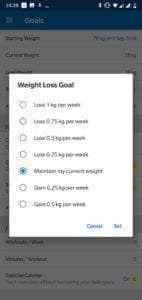
The Meal Plan
Anyhow, you have reached the point where you need to do some thinking. You know how many calories you need, you have chosen a meal replacement of your liking, but you have no idea what to consume otherwise.
- Choose the meal which you are going to replace with your complete food shake. Any of them will work.
- Plan the other meals. You can really eat “whatever” you want, but I recommend sticking to some macros. As a beginner I would not worry that much, mainly about :
- Breakfast: Oats, banana, yogurt, granola, wholegrain bread, butter (careful), milk, cottage cheese, blueberries, other fruits (careful)
- Lunch: Salad, quinoa, avocados, tuna, rice, chicken, turkey, cottage cheese, eggs, sweet potato, broccoli, mince (careful with calories), coli flower, vegetables, tomatoes
- Dinner: Same as before. The list is not exclusive, just few ideas.
- Double check calories add up. Careful with hidden calories from coffees, dips, oil,…
- Are you struggling to make a plan? Check the series “One week on” where I do one week on meal replacements and share my diet.
Diet DOs:
- Drink a lot of water (~2L). Helps you feel satiated.
- Count every calorie at the start.
Diet Don’ts:
- Don’t skip meals if possible.
- Don’t avoid fats, they are necessary for proper body function.
- Drink calories: Soda, coffee/tea with milk and sugar, energy drinks, juice… If you do count them.
2- How to Incorporate Your Meal Replacements to Your Diet.
Basically, you can replace any of the meals that you prefer with your meal replacement.
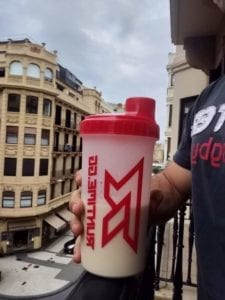
Some people will struggle with breakfast. They will think they are not hungry or that they do not have enough time. It is important not to skip breakfast. The body might slow metabolism as a response, and spend less energy during the morning (Betts et al., 2016).
For others, the main issue will be lunch, since they will have no healthy alternatives available and will tend to eat fast food or meal deals containing sodas and crisps. Definitely, a sign that this is a good time to have your shake.
If you arrive home late, tired after a long day, with no willingness to cook and tend to use takeaways more than you should, then this is the right time to have your meal replacement shake.
Other things you should take into consideration are:
- Which is your favourite meal? Do not replace it.
- When can you safe the most money?
- How can you boost your productivity by decreasing the amount of meal preparation time?
- How often will you have a shake instead of a meal?
3- How Many Shakes a Day?
You could go as little as 0 or as far as replacing all your meals. Meal replacements are not but a tool that help you achieve your goal. Like heart rate monitors to run a marathon – I get it, enough with the marathon analogies-. If you replace all your meals with shakes be aware of the following:
- It can get dull. Very dull.
- There is no real need for you to do that, only if you really want. We are looking to change your lifestyle, at the end of the day.
- You should start slowly. First replace one meal, then two and finally after a couple weeks of adaptation three.
- Then, I would strongly recommend you do your analysis.
4- Be Active. It Really Helps.
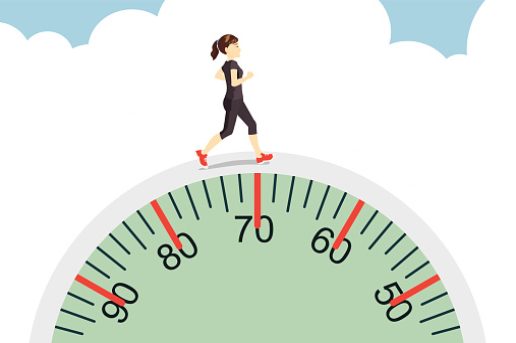
I do not know what your background is. If you are a lazy couch potato or a fairly active man/woman. All I want to say is that being active is not only helpful to lose weight, but is key to a balanced and healthy lifestyle. Despite that, will you be able to lose weight without moving around much? Yes, but you will hit a hard plateau earlier (in which you may have to start doing something) and you will be more likely to gain weight again (especially if you do not change some habits). Hey, but I know people who have done it.
If you choose to do sports, and have not done much before start slow. You do not need to do a 5k run, or 1h cycling or 30′ row. Do something, whatever you enjoy. That thing you used to do when you when younger and you had a good time with. Walking, jogging, playing volleyball, cycling, hiking, carpentering,… It does not need to be a sport. Just a excuse to get up in your feet and move. Like the recommended 30′ walk a day or 150′ of moderate activity a week. It is not as much as it sounds.
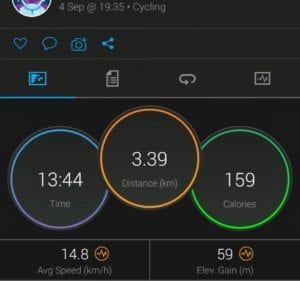
Sport DOs
- Find something you like doing.
- Listen to your body while you exercise. No need to push if you are not going to compete.
- Drink while doing sports.
Sport DONT’s
- Don’t expect too much of yourself. Adapt to your physical level.
- Don’t do something you will not enjoy. You will end up quitting.
- Don’t put too much strain on yourself if you have any physical or health limitations.
5- Problems and How to Solve Them.
You will encounter problems, situations you did not expect or facts that make you want to quit. Do not give up to the moment, think relatively, look at what you have achieved and reflect on the moment. You are doing great, keep going;
- Reaching a plateau. Perhaps you started with a big caloric deficit, perhaps your body has gotten used to not eating as much. Either way, you have stopped losing weight. What to do? You have a couple of options. One would be to increase the deficit not by subtracting more calories from your intake, but by increasing your output (how much you burn). Go for a 10-15 min run. Walk 1h around town. Cycle to work. Anything, just make sure you burn more. The second option would be to increase your calorie intake to your normal calories for 3-4 days to reset your metabolism. Do it with caution, though.
- Inconsistency. You are unable to keep it consistent. If that is the case you need to think about how you are changing your lifestyle and what is stopping you from doing so. Be honest with yourself.
- You feel hungry continuously. This is probably due to being on too big of a deficit. If not make sure your plates look full, drink plenty of water throughout the day and keep yourself busy.
- You binge eat during the night. This used to happen to me regularly. I am weak at night. I tend to eat a lot then. Going early to sleep and avoiding those late nights and early mornings is the best advice I can give. If you cannot do that, have a small shake, like a single scoop shake instead of opening your cupboards with all the goodies.
- Social events. Ok, so everybody has events that they need to go and meals where they cannot control what is served. I recommend always looking at the calories in the menu or MFP before and have chosen what to eat in advance. Avoid the desert and the starters, stick to the main. And if you fail, it does not matter. It is just one meal after all.

6- Tracking Your Progress.
As mentioned priorly, I recommend keeping track of your weight on a weekly basis. Why? Because, there can be many fluctuations on a daily basis due to many factors including body fluids, water retention or stress, among others. It will also be an emotional roller coaster and a way to become an obsession. We do not want to be obsessed with losing weight JUST AWARE.
Weekly weight and progress pictures will help you to see how you are evolving. There will be weeks where you see little to no progress, but a week will not matter in the bigger picture. Always look at the bigger picture in these circumstances, 1 week is nothing in the whole year. As long as you are changing your habits, you are making progress.
The only thing you need to track on a daily basis is the calories. This will already give you some stress, that is why you do not want to add more. At the start, you might want to weigh your food to be sure you are having the right calories. As time goes on, you will feel more comfortable and you will be able to stop tracking so thoroughly. This is another step towards creating a healthier version of yourself.
Products that Have Helped Me Lose Weight
I don’t believe in miracle pills or powders that accelerate your weight loss journey. There are, however, a couple of products that I’ve used to either boost my meals or make them less boring during dieting.
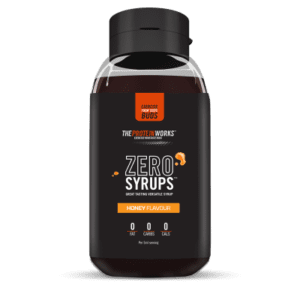
Non-caloric sweeteners were a life-changing discovery when I started dieting. I had to move from Latte to black coffee, from sweet yogurts to bland quark or cottage cheese etc.
Sweeteners, like the above, helped me make those meals enjoyable again. There are plenty in the market, made with stevia, sucralose or other sweeteners; and tons of flavours to choose from.
Zero Syrups is one of my favourites. It provides 0 calories, 0g of sugars and tons of flavour per drop.
I highly recommend trying it.
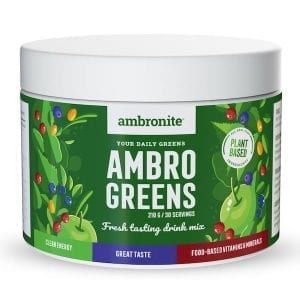
Green powders were a late discovery, but one that I’m glad I found. When dieting, you obviously eat less, and this can mean getting fewer nutrients.
Essential nutrients like vitamins & minerals, or non-essential nutrients like antioxidants or ligans. They have key functions in our immune system, metabolic processes and body regulation.
With green powders, you don’t need to sacrifice your nutrition. You can add one scoop, which will provide you with 37calories, but tons of nutrients.
If you are truly set on having a faster weight loss, some of the best fat burners might be of help. In particular when it comes to appetite control and making you feel more energized. However, this should be used as a crutch and not as a main tool.
Intermittent Fasting; Does it Work?
Despite being fairly popular and often mentioned as a “diet” for weight loss; intermittent fasting is not a miracle solution. It is, however, a good way to narrow the window in which you consume food; hence, helping you control your appetite and cravings better.
Definition: Intermittent fasting or IF is an eating pattern that limits your window of food intake to few hours a day. Then you cycle between voluntary fasting and non-fasting over periods of time.
Examples: For instance, 8-16 is a very beginner-friendly and common IF cycle. It consists of a window of 8h during the day (12am to 8 pm, for example) and 16h of fasting (8:01pm to 11:59am).
Types: 8/16, 6/18 and 4/20 are various types of IF techniques. However, OMAD (One Meal a Day) is the most extreme take on intermittent fasting. You can also do fasting days and non-fasting days.
Why Would You Do IF?
Many people believe that fasting periods help your body cleanse and cause hormonal changes that can be beneficial for weight loss. Among those hormonal changes, you have the lowering of insulin and an increase of the growth hormone.
As such, there have been links to other health benefits, besides weight loss:
- Decreased insulin resistance.
- Might reduce LDL, inflammatory markers and blood triglycerides.
- Might help decrease the chances of Alzheimer’s and expand the lifespan.
Nonetheless, these claims are often founded on studies made on animals, and much is to be discovered about the positive effects on humans.
IF and Weight Loss; Personal Experience
When it comes to weight loss, the major positive effect is that it limits your calorie intake. It helps you control hunger and restricts cravings and unnecessary eating. This is a direct effect of reducing the window in which you can eat.
In my experience, doing a 8/16 split where I started eating at 12 and stopped at 8 was the best. While at first controlling my hunger in the morning was a problem I quickly got used to start eating at 12 (waking up at 7am). Similarly, I used to be a big after dinner snacker. Nonetheless, by restricting myself to not eat after 8, I reduced that needless snacking and also prevented going bloated to bed. Which resulted in better sleep and not waking up completely full.
In summary, IF is not necessary or a magic trick; but just another tool you can use in your weight loss journey.
FAQ
Yes, you can lose weight with a keto diet. In fact, there are many people out there that have done so (just have a look to /r/keto to find thousands of testimonies. The matter of fact is, that the underlying process is the same.
Choose from our best Keto meal replacements, incorporate it to your diet, keep your caloric deficit, et voila!
Yes, as answered in the previous question the meal replacement is but a tool that will help you. It does not matter if it is vegan, gluten-free or keto. If you are able to incorporate it to a good meal plan, you will succeed with your goals.
No, it is not. It is nothing to worry to much about either. You can have a cheat meal a week if you want. If your caloric count is lower for that week, you will still lose weight. One day means nothing when you think about one year. Just keep your “cheats” under control. Everybody cheats from time to time.
Sip your shake slowly instead of drinking it asap. Make it last. You can even refill your shaker with water to drink the remains (not something I particularly like).
Make sure you drink water all throughout the day.
Try not to snack in unhealthy calorie heavy options (flapjack, muffin, cookie). Set them as “bad” in your mind.
Brush your teeth after finishing your meal.
Keep your mind busy.
Is your shake around 500-600kcal? Split into two 250/300kcal meals.
Try really hard one day not to eat more. Will make the next day easier. Do not set a bad precedent.
Motivational Stories:
a) Keto transformation. The tale of a father who lost 100lbs in 8 months so he could enjoy the Disney trip with his daughters. Family can be a very strong motivator and good point of support.
b) Sports can help the process. The transformation of a gamer into a new person in full detail. Comes with programs, background diet and how the change in lifestyle was benefitial to him.
c) 19 reasons why you might be fat. Tips from someone who was trying to get leaner for 15 years until he finally got there. As I said, the important fact is to get there. The rest is to enjoy the journey.
d) Crazy 1 year weight loss and management journey on Huel.
r/fitness, r/keto, r/getmotivated, r/progresspics, r/loseit… are among the subreddits you will be able to find more like these.
Embed This Infographic on Your Site
<p><strong>Created by Latestfuels.com </strong><br /><br /><a href='https://latestfuels.com/how-to/lose-weight-with-meal-replacement-shakes/'>How to lose weight with meal replacements</a><iframe width="800" height="5812" frameborder="0" scrolling="no" style="overflow-y:hidden;" src="https://create.piktochart.com/embed/32917256-how-to-lose-weight-with-meal-replacements" ></iframe>

